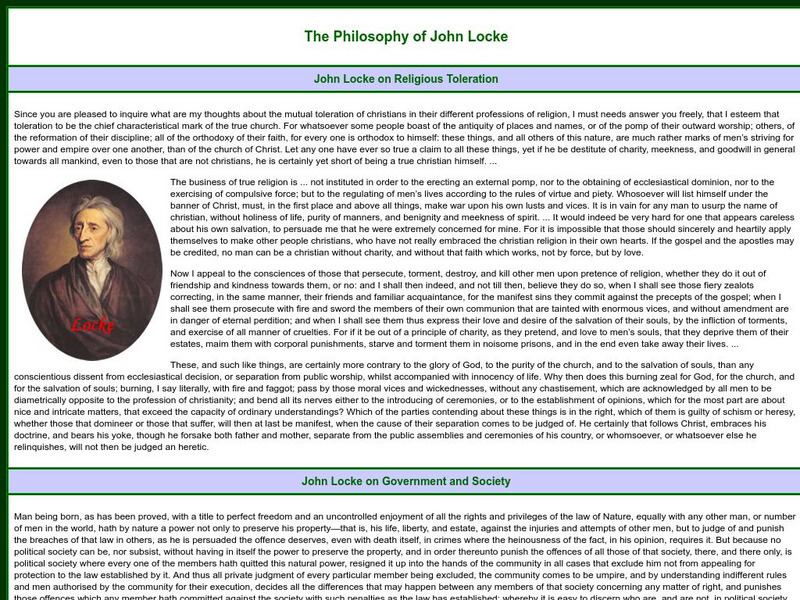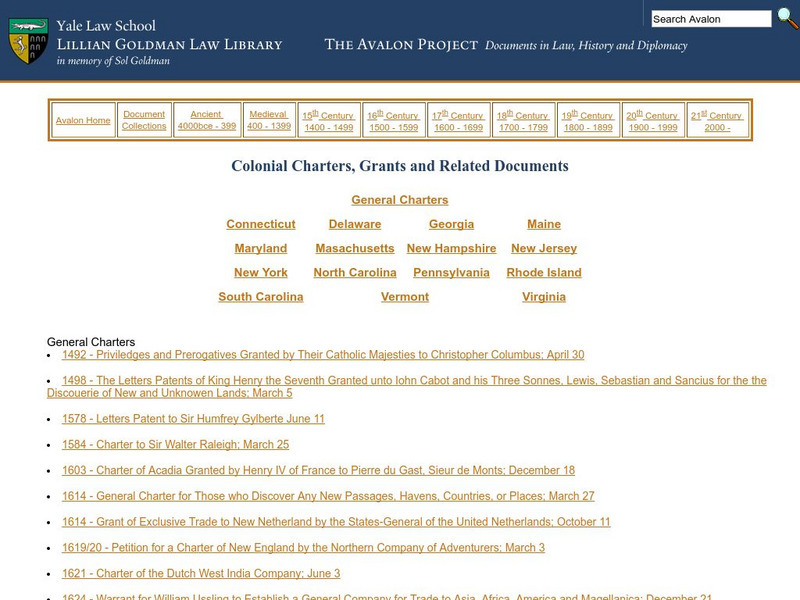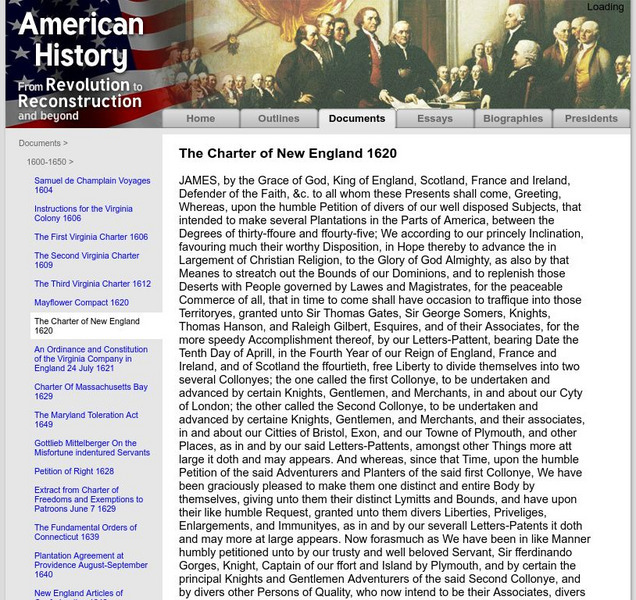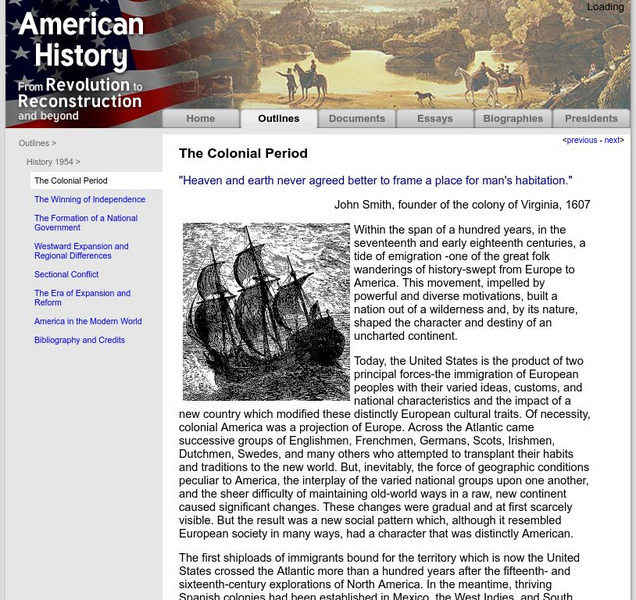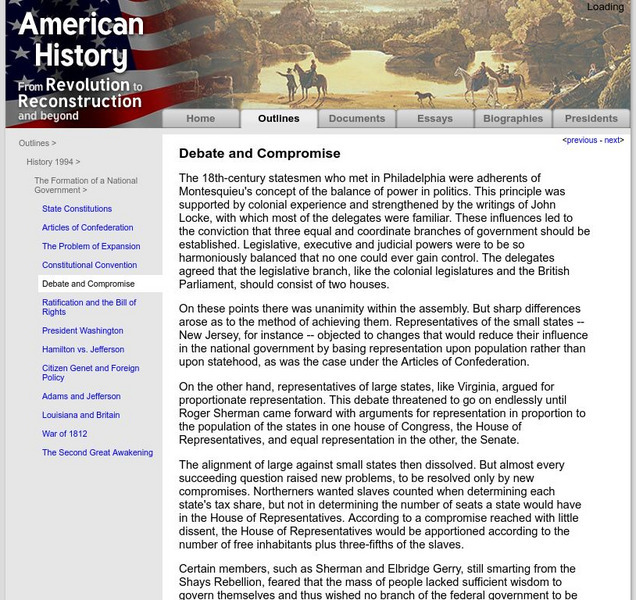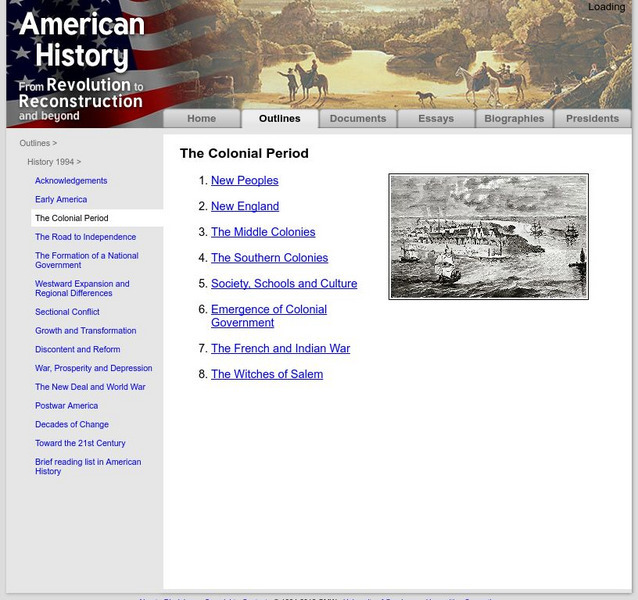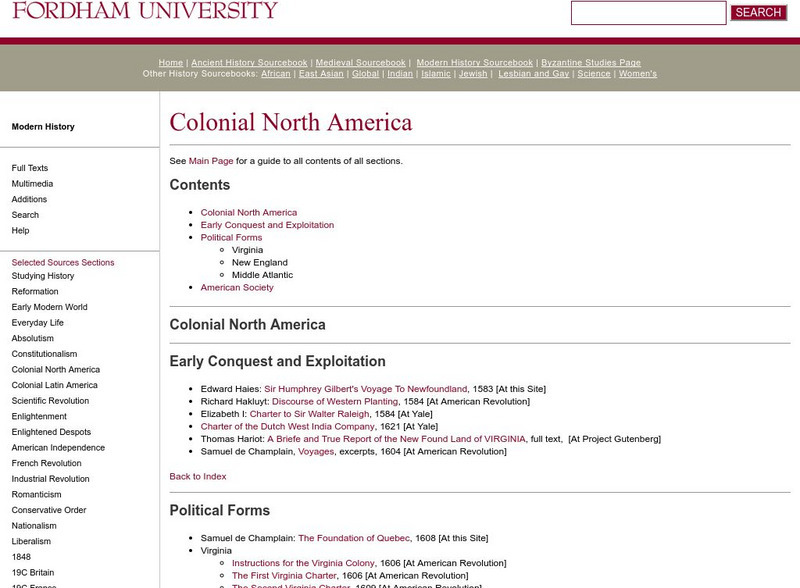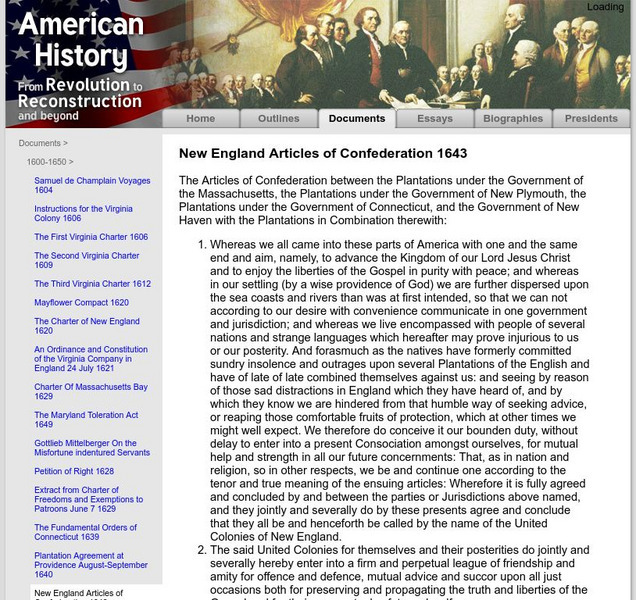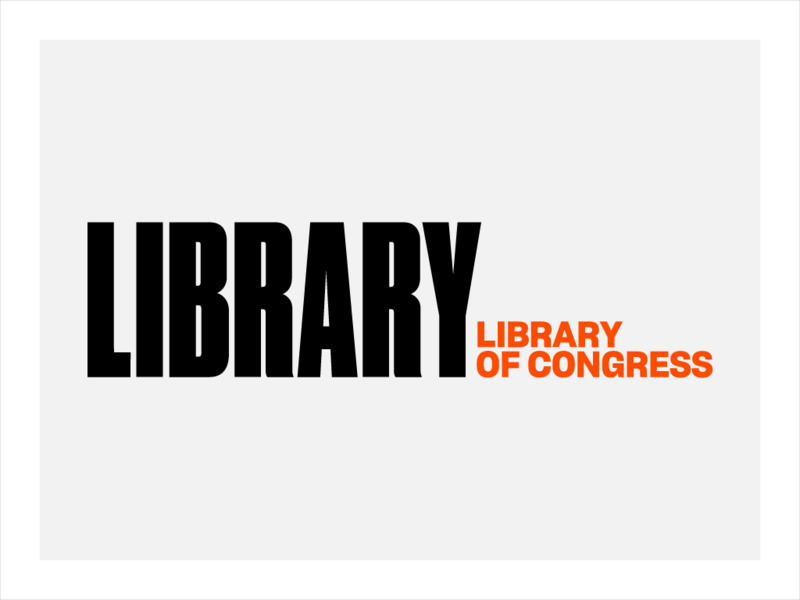University of Maryland
Howard County Public School System: Foundations of American Government [Pdf]
How was the foundation of today's representative democracy established in early colonial America? Students will be able to source three documents and corroborate evidence to draw conclusions about the development of democratic ideas and...
Henry J. Sage
Sage American History: The Philosophy of John Locke
Writings of philosopher John Locke on religious toleration, government and society from which students will gain an understanding of the underpinnings of American government.
Other
Bringing History Home: Native American History
This 5th grade unit is an introduction to Native American history in the 19th and 20th centuries. The lessons focus on U.S. government policies that have determined the official relationship between the government and Native American...
Quia
Quia: American Colonial Government and Policies
Review your knowledge of the early American government with these interactive games. Play concentration, matching, flashcards, or click on "list of terms" to see the vocabulary used in each activity.
Yale University
Colonial Charters, Grants and Related Documents
Scroll to Massachusetts and link to the colonial documents establishing the colonies' earliest forms of government and laying the foundation for self-governing and eventual independence from England. Beginning with The Charter of England...
CZBrats
The Americans in Panama: Taking the Canal Zone
This page is a chapter from the book entitled "The Americans in Panama." It provides information about the colonial period of Panamanian history. "Panama's relations with the parent government at Bogota, from 1821, the year of...
University of Groningen
American History: Documents: The Charter of New England 1620
View the complete text of the 1620 British Charter for the settlement of New England granting authority to colonize and govern.
University of Groningen
American History: Outlines: The Colonial Period
The early settlers to the New World began to map strategy for their own system of government. This site details that strategy and what kinds of events spawned the idea of representative government.
University of Groningen
American History: Outlines: Debate and Compromise
The 18th-century statesmen who met in Philadelphia were adherents of Montesquieu's concept of the balance of power in politics. This principle was supported by colonial experience and strengthened by the writings of John Locke, with...
University of Groningen
American History: Outlines: A New Colonial System
Although some believe that the history of the American Revolution began long before the first shots were fired in 1775, England and America did not begin an overt parting of the ways until 1763, more than a century and a half after the...
University of Groningen
American History: Outlines: Louisiana and Britain
One of Jefferson's acts doubled the area of the country. At the end of the Seven Years' War, France had ceded to Spain the territory west of the Mississippi River, with the port of New Orleans near its mouth -- a port indispensable for...
University of Groningen
American History: Outlines: The Colonial Period
A brief discussion of the colonial period in the United States. Includes information on New England, the middle colonies, and the southern colonies. Also, find out about the early government, and the French and Indian War.
University of Groningen
American History: Outlines: Boston "Tea Party"
In 1773, however, Britain furnished Adams and his allies with an incendiary issue. The powerful East India Company, finding itself in critical financial straits, appealed to the British government, which granted it a monopoly on all tea...
Internet History Sourcebooks Project
Fordham University: Modern History Sourcebook: Colonial North America
Scroll through this site from the Modern History Sourcebook of Fordham University to New England and click on the primary source documents concerning Edmund Andros. This site contains dozens of links related to colonial America. Sections...
Other
Our American Revolution: The American Revolutionary Cities
The major cities in colonial America played a huge role in preparing for the Revolutionary War, both in terms of ways of governing and philosophy. Read about Philadelphia, Williamsburg, New York, and Boston and the events in those cities...
Colonial Williamsburg Foundation
Colonial Williamsburg: Patrick Henry
Biographical note on Patrick Henry, the lawyer, patriot, orator, and symbol of the American struggle for liberty and self-government during the American Revolution.
Khan Academy
Khan Academy: Guaman Poma and the First New Chronicle and Good Government
This letter written by Guaman Poma is the most famous manuscript from South America dated to this time period in part because it is so comprehensive and long, but also because of its many illustrations. View pictures of the illustrations...
University of Groningen
American History: Documents: New England Articles of Confederation 1643
View the complete text of the New England Articles of Confederation 1643, an alliance of the English colonies of Massachusetts Bay, Plymouth, Connecticut, and New Haven.
American Museum of Natural History
American Museum of Natural History: African Ethnography
The Anthropology Division's African collection is extensive in terms of geographic coverage. It includes North Africa, West Africa, and Madagascar, although its greatest concentration of material is from central and southern Africa. The...
Annenberg Foundation
Annenberg Learner: America's History in the Making: The New Nation
After the War of Independence, Americans were unable to agree on the form of their federal government. This unit explores how those conflicts played out as the new Republic defined its identity in relation to other nations.
Yale University
Yale New Haven Teachers Institute: Connecticut Constitution, 1639 1789
Develops the concept of "constitutionalism" as related to the U.S. Constitution and Connecticut's role in the Constitutional Congress and Convention. An overview of Connecticut's colonial history, and judicial origins and organization,...
Digital History
Digital History: By What Right [Pdf]
Two opposing philosophies concerning the relationship between government and its citizens were expressed by Thomas Hobbes and John Locke in the 17th century. Compare these two philosophies and see how they were related to the colonists'...
Library of Congress
Loc: The Constitution: Counter Revolution or National Salvation
Using primary texts and prior study of Colonial America and the Revolution, students examine "what type of government would best represent the ideals of the American Revolution." Worksheets, discussions, and role-playing within this...
Independence Hall Association
U.s. History: The Beginnings of Revolutionary Thinking
The American Revolution was close to 200 years in the making. Read about the philosophies and attitudes toward government, as well as the diverse populations who came to the British colonies, that eventually fomented rebellion.
![Howard County Public School System: Foundations of American Government [Pdf] Lesson Plan Howard County Public School System: Foundations of American Government [Pdf] Lesson Plan](https://static.lp.lexp.cloud/images/attachment_defaults/resource/large/FPO-knovation.png)
